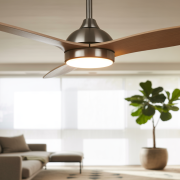So you’re thinking about buying a house with tenants already living in it? This can be a great way to get started as a landlord, but there are a few things you need to know before you proceed. In this blog post, we’ll go over everything you need to know about buying a house with tenants. We’ll cover the pros and cons, as well as some tips for making it work.
Should You Buy A House With Tenants?
There is no right or wrong answer to this question – it depends entirely on your personal circumstances and what you are hoping to achieve by buying a house with tenants. However, there are some things you should bear in mind if you are considering such a purchase.
First of all, it is important to be aware that you will be taking on the role of the landlord if you buy a property with tenants already in situ. This means that you will be responsible for dealing with any issues that arise, from repairing broken appliances to handling rent payments. If you are not prepared to take on this responsibility, then buying a house with tenants may not be the right choice for you.
One of the main advantages of buying a property with existing tenants is that you will have immediate rental income coming in. This can easily cover your mortgage payments, leaving you with extra cash each month. Additionally, you won’t have to go through the hassle and expense of finding new tenants yourself. The downside to this, however, is that you will be responsible for any repairs or maintenance issues that arise.
Important Points to Remember
First and foremost, you need to make sure that the tenants are on a good lease agreement. This will keep you safe in case of any difficulty that may come.
Secondly, it’s important to have a good relationship with the tenants. If they feel respected and valued, they’re more likely to take care of the property and be good neighbors.
Finally, don’t forget to budget for any necessary repairs or maintenance that may come up.
With all that said, buying a house with tenants can be a great way to get started in real estate investing. Just be sure to do your homework and stay prepared for anything that might come.
Know the Right of Tenants
When you buy a house that already has tenants, it’s important to know your rights and responsibilities as a landlord. Depending on the state you live in, there may be different laws governing the rights of tenants. For example, in some states, landlords are required to give tenants a certain amount of notice before entering the property. In other states, there is no such need. It’s important to familiarize yourself with the laws in your state so that you can ensure that you are treating your tenants fairly and within the bounds of the law. Additionally, it’s a good idea to develop a good relationship with your tenants so that they feel comfortable coming to you with any concerns or problems they may have. By taking the time to understand your rights and responsibilities as a landlord, you can help create a positive living environment for your tenants.
Benefits Of Buying A Property With Tenants
Purchasing a property that already has tenants in place can be a great investment for a number of reasons. Below are four benefits of buying a property with tenants:
1. Immediate return on investment – rental properties generate income from day one, so you’ll start seeing a return on your investment immediately.
2. Predictable cash flow – because the rent will be paid on a regular basis, you’ll have a more predictable and reliable monthly cash flow. This can be helpful in budgeting and forecasting your overall financial situation.
3. Potentially lower purchase price – properties with tenants in place may sell for less than comparable properties without tenants, so you may be able to get a great deal in your budget.
4. No hassle of finding new tenants – You won’t have to go through the hassle and expense of finding new tenants. This can be significant savings in both time and money.
Drawbacks Of Buying A Property With Tenants
1. Purchasing a property with tenants may mean that you have to deal with disruptive current occupants.
2. You may not be able to raise the rent right away. If the current tenants have a lease, you’ll be bound by that lease until it expires. This means that if you want to raise the rent, you’ll have to wait until the lease is up for renewal.
3. Tenants may create nuisances that affect your enjoyment of the property or negatively impact its value.
4. Evicting tenants can be expensive and time-consuming.

Avoid Purchasing a House with a Bad Tenant
Most people dream of owning their own home, but the process of buying a property can be fraught with peril. One potential pitfall is purchasing a home that already has tenants in residence. While it may seem like a good idea to buy a property that is already generating income, there are a number of risks associated with this scenario. The first is that you may not be able to evict the tenant in order to move in yourself or sell the property. Even if you are able to do so, it can be a long and difficult process. Additionally, the tenant may damage the property or make it difficult for future tenants, affecting both your bottom line and your peace of mind. For these reasons, it is generally advisable to avoid buying a house with a bad tenant.
How to Identify Bad Tenants?
One red flag to watch out for is bad rental history. If a tenant has been evicted from previous rentals or has had problems with their credit, they’re more likely to cause problems as a tenant. Similarly, if a tenant has a history of drug use or violence, they’re also more likely to be problematic. As a result, it’s important to do your homework before buying a house with tenants. Otherwise, you could end up with a bad tenant who causes all sorts of problems.
Buying A Property With Tenants: FAQs
Can you buy a house with tenants?
Yes, it is possible to buy a house with tenants. The best way to go about it is to speak with a real estate agent who can help you find the right property and also advise you on the best way to go about acquiring it. Keep in mind that purchasing a property that already has tenants in place can be a bit more complicated than buying a property without tenants, so be sure to talk with an expert for guidance.
What happens when you purchase a house with a tenant?
When you buy a house that already has tenants in it, you become the new landlord. The current tenants will usually be able to stay in the property unless you want to move in yourself or undertake significant renovations that require them to move out for a period of time. In some cases, the previous landlord may have put the tenants on a month-to-month lease, which gives you the option to evict them with 30 days’ notice. However, if they have a fixed-term lease (for example, six months or one year), then they are entitled to stay until the end of that lease period. As the new landlord, you will be responsible for collecting rent and maintaining the property.
Can I evict or expel a tenant when I purchase a house?
If you are the new owner of the property, you have the right to evict the tenant. You must provide written notice to the tenant specifying the date by which they must vacate the property – at least 30 days from the date of the notice. If the tenant does not vacate by that date, you may pursue legal action to evict them.
Before taking any such action, it is always recommended that you speak with an attorney who can advise you on your specific situation and help you navigate any potential legal challenges.
What to do if I purchased a house and the tenant won’t leave or move out?
If the tenant won’t move out, you’ll likely have to go to court to get them evicted. The first step is usually to send the tenant a written notice to vacate, informing them that you intend to evict them if they don’t leave within a certain number of days. If the tenant still doesn’t leave, you can file an unlawful detainer lawsuit in court. If the court rules in your favor, the tenant will be ordered to leave and you can have the sheriff enforce the eviction order.













Comments